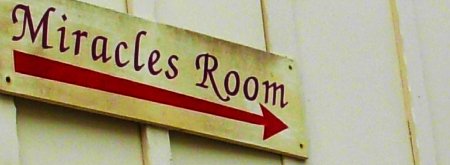Does Science Have Limits?
Nearly 2,500 years ago, Aristotle opened his masterpiece Metaphysics with the following claim:
All human beings by nature desire to know.[1]
He then says this makes us completely different from the animals – they really don’t seem interested in discovering all that much about either themselves or the world they find themselves in.
It is a pretty reasonable point, as becomes clear when we start listing ways in which human beings have tried to know things: philosophy, theology, history, psychology, mathematics, literature, alchemy, archaeology, astronomy, agriculture, and many, many more – including, of course, physics, chemistry, and biology, the so-called hard sciences. How many of these does a porcupine, a pelican, or a porpoise pursue? None.
There was a time when these different forms of study were all mixed and muddled. Questions about god(s), earthquakes, stars, beauty, and geometry were intermingled with one another; they could all be part of the same discussion. There is something wonderful about this – each area has its own ‘truths’ of a kind, and they can speak to each other in profound ways – but it is also rather impractical. ‘Knowing’ something about beauty is quite different to ‘knowing’ something about earthquakes. Both might help you choose where to live, but not at all in the same way.
Putting Limits on Science
It was partly because of considerations like this that, from the fourteenth to the seventeenth century, some thinkers (mostly Christians, in fact) began to try and separate out one particular way of knowing from the others. They decided that some questions could be drawn out from the mix and put into their very own box – a box which has now become known as ‘science’.
Over time,
more and more questions went into the science box
Over the years, more and more questions went into this science box. Once there, they were dealt with by using the ‘scientific method’. The key was choosing the right questions – ones which could be answered by taking measurements, making further predictions, inventing hypotheses, and carrying out experiments. Examples might be ‘what makes the planets move?’ or ‘what happens when things burn?’
These ‘scientists’ also found that maths played a major part in their science. They could often write their answers down as equations – sometimes referred to as the ‘laws of physics’ or ‘laws of nature’.
It is really, really important that everybody understands that this is what science is: a box into which we place specific questions that we then treat in specific ways. Mary Midgley, the famous philosopher of science, puts it this way:
The success of 17th-century physics was due wholly to its founders
seeing the need to limit its scope – to separate out physical questions
from others that were entangled with them.[2]
The National Academy of Sciences (NAS) in America still describes science this way:
The use of evidence to construct testable explanations and predictions
of natural phenomena, as well as the knowledge generated through this process.[3]
In other words, science provides us with natural explanations for natural things. That is the entire point – science was deliberately limited right at its birth, and remains limited now. Science began in a box, and it is still in it now.
Or is it?
The Scientific Take-Over
Some people argue the situation has changed. They think the scientific method has been so brilliantly successful that it should be used to handle all other types of questions as well. Science, they point out, has explained galaxies, atoms, and cells. We should therefore use it to explain morality, art, and religious beliefs. Here’s Peter Atkins, the Oxford Chemist, for example:
I have to set myself an honest target, which is nothing less than complete explanation[4]
At first, this sounds convincing. Surely science will (eventually) answer all of our questions, provided we stick with it and follow the evidence – won’t it? Theology and philosophy should stand aside; science, in all of its triumphant glory, should take over.
Remember the Box!
Things are not quite that simple, however: it seems these people have forgotten about the box. If science is really going to explain everything then there are only two ways that could happen: either we must put all those other questions into the science box, or we must let science out of it. And, as it is pretty easy to show, neither of these options actually work.
Science has no tools which can tell us whether something is morally right or wrong
Let’s take the first one, and try putting non-science questions into the science box. For example, we could ask ‘is it ever ok to steal?’ Can science give us the answer?
Science’s tools are observation, measurement, prediction, and experiment. It then uses these (most of the time) to write down a mathematical law. The problem is this: science simply has no tool or equation which can ever tell us whether something is morally ‘right’ or ‘wrong’. The question won’t go into the box – or at least if it does, it won’t get an answer.
The second possibility is that we release science from its box. But what does that mean? It means no longer using the scientific method and, in turn, this means whatever we’re doing isn’t science any more. Suddenly, we’re doing philosophy or ethics or psychology instead – the fields which are equipped to answer the question.
The God Question
Science can only confirm or deny natural phenomena
So what about the biggest question of them all – ‘Is there a God?’ Can science answer this? Frustratingly for us scientists, it can’t. The question just won’t go into the box.
Remember, the limits placed on science all those years ago (and still essential today) mean that science can only confirm or deny natural phenomena – not supernatural ones. We’ll have to get out of the box sometimes, as Stephen Hawking’s excellent question makes clear:
What is it that breathes fire into the equations and makes a universe for them to describe?[5]
And yet, having said all this, science is still of huge value to the Christian: there are plenty of science questions that can help us know about God. But that, dear readers, would be another article altogether…
References
[1] Full online translation available here
[2] Metaphysics and the limits of science, Mary Midgley, The Guardian, 28th August 2010
[3] National Academy of Sciences, Definitions of Evolutionary Terms
[4] Debate Transcript from “What is the evidence for/against the existence of God? William Lane Craig vs Peter Atkins”, Carter Presidential Center, Atlanta, Georgia, United States – April 1998
[5] Hawking, Stephen (1988). A Brief History of Time. Bantam Books.



